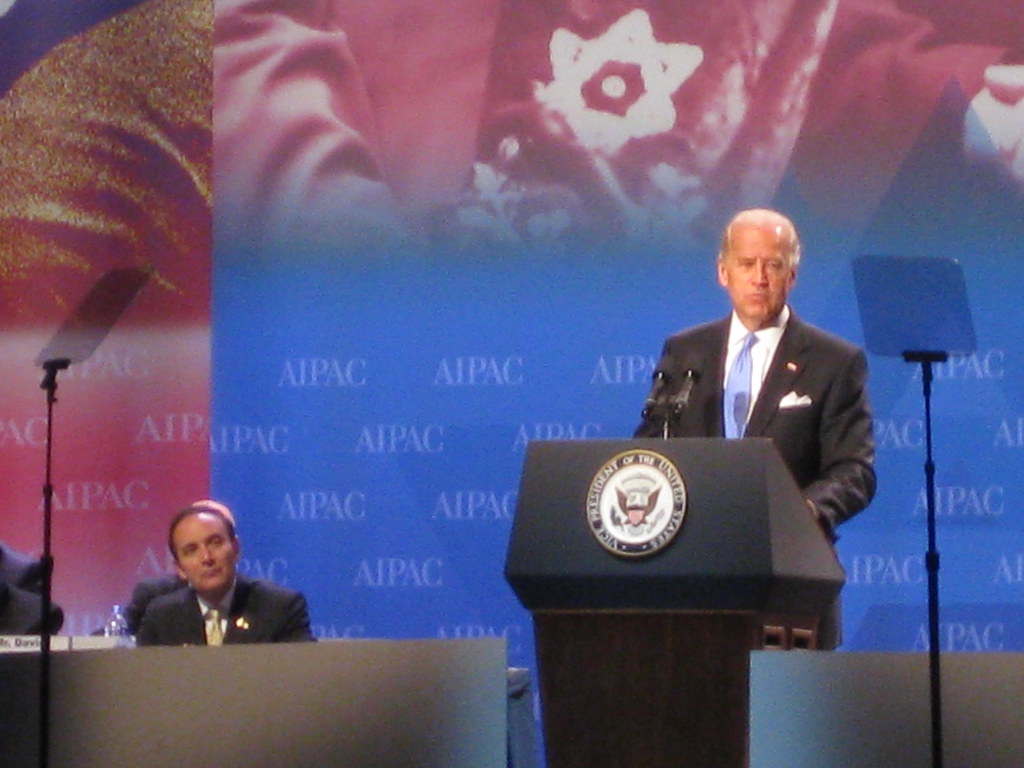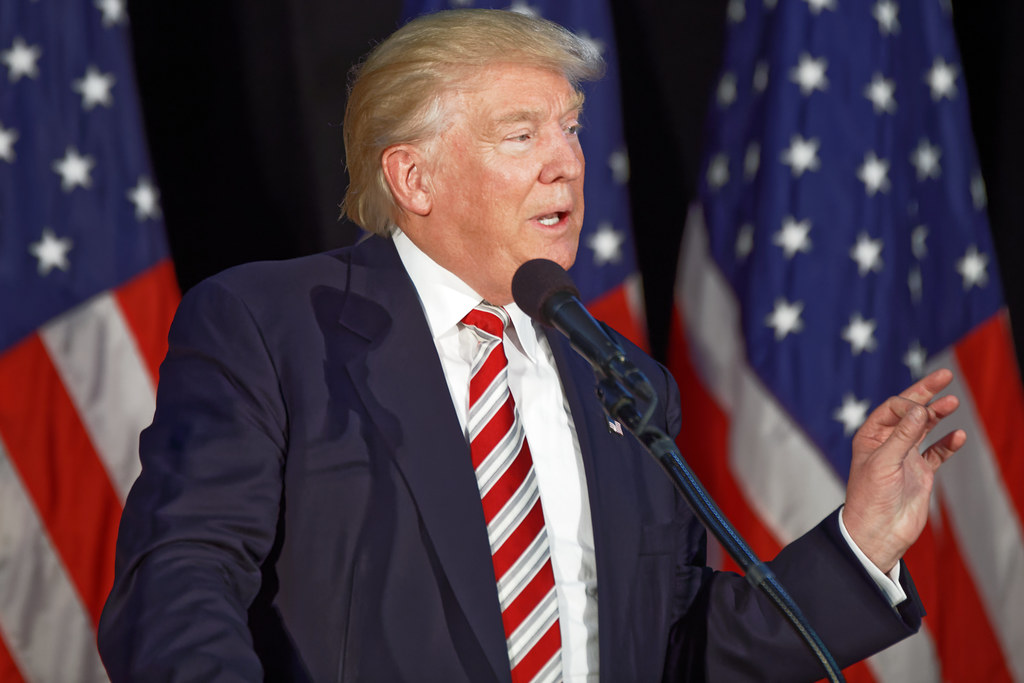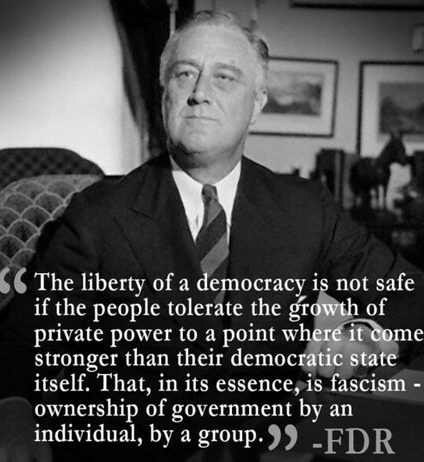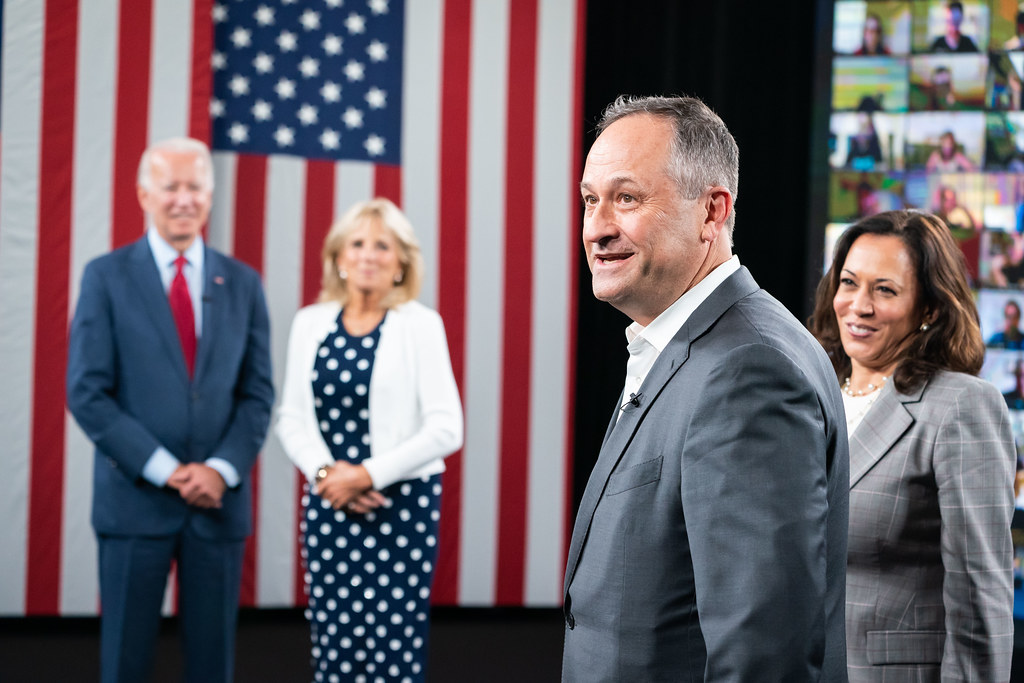The Heritage Foundation, a right-leaning think tank in the United States, has gained considerable influence in recent years, with its proposals often becoming reference points during election campaigns. One of its notable projects, Project 2025, outlines a conservative governance roadmap. Critics argue that its policies lean toward authoritarianism; however, the Heritage Foundation has been issuing similar policy guides every four years. This raises the question: if Project 2025 represents a serious threat, why is it receiving heightened attention now, just as the U.S. faces a pivotal election?
On the Republican side, the party has found itself rallying behind Donald Trump once again. Despite ongoing legal challenges related to his alleged attempts to overturn the 2020 election, Trump remains the party’s frontrunner. His appointments to the Supreme Court—resulting in a 6-3 conservative majority—have led to rulings that many perceive as aligning with his policy preferences. This has sparked debate on whether the court’s decisions may, at times, limit justice for certain groups. Nonetheless, Trump’s influence remains strong, bolstered by significant support from a portion of the working class disillusioned with the political establishment.
The Democratic election season has also encountered hurdles. President Joe Biden, who indicated during the 2020 campaign that he might serve only one term, was now seeking re-election, disappointing some supporters who hoped he would pass the torch to a younger generation.

Recent conflicts in Gaza intensified the discontent among Biden’s base. Despite the severe humanitarian toll in Gaza, Biden’s administration continued to support Israel, including sending military aid. Reports from international human rights organizations, including Amnesty International and Human Rights Watch, have documented alleged violations of international law, while the United Nations has repeatedly urged for a ceasefire. The Biden administration’s firm stance alongside Israeli Prime Minister Benjamin Netanyahu has left many American constituents disillusioned with U.S. foreign policy.
In response, social media has emerged as a powerful platform for Palestinians to share their experiences and for Americans to witness firsthand how their tax dollars are being utilized. Platforms like TikTok offer real-time glimpses into life under conflict, allowing viewers to see Palestinian families mourning and struggling amid widespread devastation. Gaza’s healthcare and educational infrastructure, severely affected by years of blockades, is stretched to its breaking point, leaving residents without adequate medical care, shelter, or support.
The global response has been strong. In the U.S., students have staged protests on university campuses, advocating for boycotts of Israeli goods and calling for an immediate ceasefire. These protests have sometimes been met with criticism, as well as arrests and disciplinary actions against students, sparking a national debate about freedom of speech and the right to protest.

As the 2024 election season progressed, President Biden faced mounting pressure to step aside, with both critics and supporters questioning his capacity for a second term. For months, Biden reiterated his commitment to serving the American people and his resolve to prevent Trump’s return to office. However, in July 2024, Biden made an unprecedented announcement: he would not continue his campaign for re-election.
This decision left the Democratic Party in a highly unusual situation. By the time Biden announced his withdrawal, primary elections had already concluded, and there was no alternative candidate in place. Typically, voters in the Democratic primaries choose only the presidential nominee, without a formal mechanism to select a backup candidate. Although many expected Vice President Kamala Harris to step in, the party had not officially confirmed this.
The abrupt shift in leadership led to an outcry from the Democratic base, with many calling for a more transparent process and a chance to reconsider potential candidates. Despite these appeals, Biden formally endorsed Harris as his replacement, effectively establishing her as the Democratic nominee without further primary contests. This move sparked a debate within the party, as some supporters felt they were being presented with a candidate outside of the typical democratic process.

Harris’s sudden assumption of the presidential campaign left many voters feeling sidelined in a critical election year, most especially the Muslim American community. As she began her campaign, she heckled protesters during her speeches, dismissing their concerns and encouraging them to go elsewhere. In one speech in Michigan, she declared she would “not be silent” on the atrocities occurring in Gaza, while just days later, at a speech to Jewish voters, she promised unwavering support for Israel and their right to defend themselves.
Presidential candidate Jill Stein has positioned herself as the sole anti-war, anti-lobby, and pro-land-back candidate in the 2024 race, appealing to disenfranchised voters across the political spectrum. Her growing support has put pressure on the two-party system, as achieving even 5% of the popular vote would secure third-party candidates a place on the national debate stage in future elections—a development that could disrupt the status quo.
Despite the Democratic Party’s changing in candidate, the race remains tightly contested. Polls show a near tie between Vice President Harris with her running mate Minnesota Governor Tim Walz and former President Trump, who has selected Ohio Senator JD Vance as his potential vice president. Trump’s campaign is further complicated by mounting legal issues, intensifying the stakes in the final days leading up to the election. Additionally, Dr. Jill Stein is dominating among Muslim voters, with recent polls showing her leading Harris by a small margin.

Harris’s campaign strategy has taken a centrist turn. Rather than prioritizing calls from progressive constituents for measures like cutting U.S. ties with Israel or implementing an arms embargo and ceasefire, she has aimed to draw in moderate voters who may be hesitant to support Trump. This approach has garnered Harris endorsements from several prominent Republicans and left the progressive left in the cold.
In response to the changing landscape, the Democratic Party has shifted focus to Project 2025, a comprehensive 900-page policy guide that has become a significant point of debate in this election. The document outlines broad policy reforms under a potential second Trump administration and has given Democrats a focal point to critique and mobilize against. Although Trump’s campaign has distanced itself from Project 2025, the recommendations align closely with his vision, providing ammunition for the Harris campaign.
Previously overlooked, Democrats are now highlighting Project 2025’s contents to illustrate the direction many conservatives envision for the country. This shift has been complicated by Harris’s endorsement from Harlan Crow, a trustee of the Heritage Foundation and influential figure in right-leaning circles. Crow’s support has led many to accuse the Democratic Party of inconsistency, questioning its alignment with figures it simultaneously critiques for supporting policies they deem authoritarian. Despite efforts to rally the Democratic base, Harris has struggled to secure a decisive lead over Trump.

Just days before the election, the Heritage Foundation introduced another document, Project Esther, targeting individuals and organizations it deems anti-Semitic. This controversial move proposes measures against individuals and groups labeled as part of a “Hamas Support Network” in the United States. The document includes recommendations for intensified counterterrorism efforts and surveillance. Critics argue that Project Esther could suppress progressive movements and infringe on civil liberties, framing it as a tool that undermines freedom of speech.
Using selected passages from the Torah, the document attempts to justify its stance on limiting dissenting voices—contradicting the Torah’s own values, which uphold the importance of questioning authority. This framing casts the robust support network that Palestinians have built to share their lived experiences as nothing more than a “terrorist support network,” portraying their efforts to raise awareness as a threat. The document further implies that if this movement is allowed to persist, it could lead to a rise in antisemitism by fueling beliefs in a so-called “global domination” by Zionist interests. It dangerously conflates dissenting voices with antisemitism, labeling those who challenge the Zionist movement as “Jew haters,” which could have serious repercussions for the Jewish community as a whole.
Project Esther specifically aims to target organizations like the National Students for Justice in Palestine (NSJP or SJP), American Muslims for Palestine (AMP), and Jewish Voices for Peace (JVP). It also focuses on individuals advocating for Palestinian freedom, labeling them as aligned solely with Hamas and thus subject to surveillance and dismantling. This focus particularly targets content creators, independent journalists, and others reporting on events in Israel and Palestine. Such measures represent a direct attack on freedom of speech and a clear attempt to silence dissent.

The First Amendment to the U.S. Constitution explicitly protects freedom of speech, stating, “Congress shall make no law… abridging the freedom of speech, or of the press.” Project Esther’s proposals to monitor and dismantle organizations based on their political beliefs raise serious concerns about potential constitutional violations. Experts have observed a rising trend of attacks on free speech across the U.S., with various laws and policies emerging that limit expression. The Electronic Frontier Foundation has also emphasized the dangers of excessive surveillance and the potential misuse of collected data, threatening not only freedom of speech but also the democratic principles designed to protect diverse perspectives.
While Harris’s campaign could potentially leverage Project Esther to further her position, her endorsement from Harlan Crow and her husband’s recent actions risk portraying her as shifting further to the right. Her husband, Doug Emhoff, has spearheaded initiatives aimed at combating “antisemitism,” which some view as responding more to political pressures than addressing the nuanced concerns surrounding the plight of Palestinians.
Doug Emhoff, the second gentleman, has been a vocal advocate against rising antisemitism. Emhoff has argued that the country faces a pivotal moment, stating, “There is a fire in this country. Either we pour water on it, or we pour gasoline. Which is it going to be?” His rhetoric emphasizes antisemitism nationwide, framing it as a critical issue in the upcoming election. Yet, Emhoff’s campaign against antisemitism has faced criticism for focusing narrowly on pro-Palestinian voices and dissenting perspectives, which he links to extremism.

Some contend that these efforts are a veiled attempt to stifle advocacy for Palestinian rights. Emhoff’s initiatives have extended to targeting certain activists and journalists who report on the realities of the Palestinian struggle, raising alarms over the implications for freedom of speech and civil liberties. Critics argue that the focus on antisemitism as a political tool can undermine genuine efforts to address systemic issues while simultaneously labeling dissenters as threats.
The United States continues to assert its identity as a democracy. However, the actions of its government, from both political parties, often reflect a self-serving agenda rather than a genuine commitment to the interests of the people. Although President Donald Trump and Vice President Kamala Harris claim their policies are fundamentally different, many of their initiatives and approaches align more closely than the American public may realize. The primary distinction lies in the narrative each candidate crafts about who represents the better choice.
This highly charged political environment, combined with a burgeoning grassroots movement, has led many to reevaluate the current election season: is the contest truly a battle between Red and Blue, or is it a struggle between entrenched institutions and the citizenry? While Harris and her campaign insist they are combating the rise of fascism, it may be time for Americans to confront an uncomfortable truth: fascism may already be taking root within their political landscape, and both parties appear intent on maintaining the status quo.





